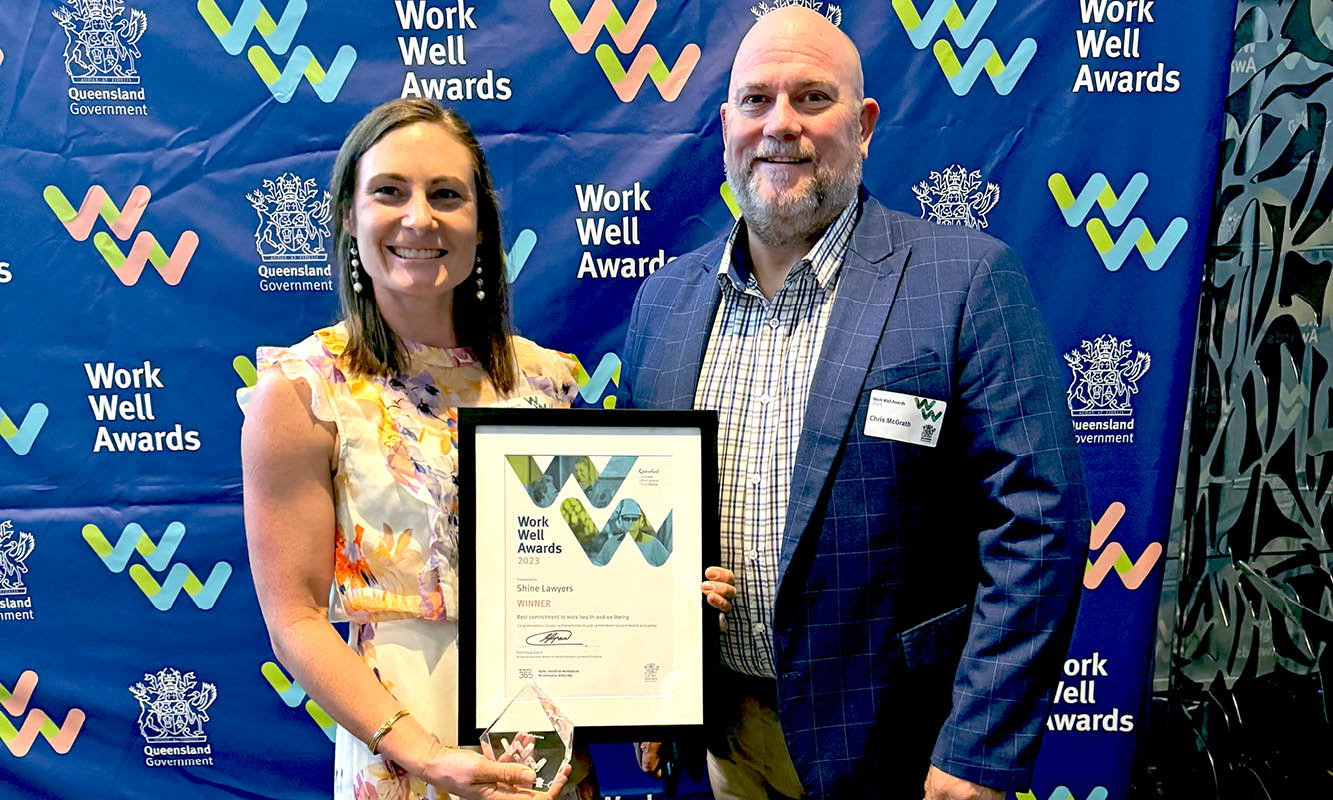Having meaningful, positive relationships is crucial to our wellbeing, and being able to spend time and interact with people who we like tends to put us in a good mood, energising and motivating us.
The importance of positive emotions through social connections is not restricted to our personal lives; it is also critical in our career.
Most people spend the majority of their waking hours at work but this is also where we tend to meet most of our social connections making it a great environment to build personally rewarding relationships.
Benefits of work friendships include strong mutual support, encouragement, having a trusted source for honest but compassionate feedback, and having someone who can celebrate the small and bigger wins. Work friendships increase your sense of belonging at work–a sense of being fully accepted and valued for who and what you are. Acceptance in the workplace has been shown to lead to higher job satisfaction, wellbeing, engagement, performance and retention levels. Close relationships between colleagues are also especially important for remote workers to prevent the experience of isolation and being “cut off” from their teams. As we have seen this year, technology can be a valuable tool to facilitate social connectedness.
According to Gallup, having a close friend at work is strongly associated with higher performance. Their research data reveals that employees who have a “best friend” at work are 43% more likely to report having received praise or recognition for their work in the last seven days, 37% more likely to report that someone at work encourages their development, and 27% more likely to report that their opinions seem to count at work. All of these experiences are critical drivers of employee engagement, which can be defined as the level of emotional commitment someone has for their job and their employer. Your level of engagement also has an impact on the amount of discretionary effort you are prepared to put in, as well as your loyalty and general enthusiasm towards your work.
So, what can you do to increase opportunities for friendships at work?
For team members
- Show a genuine interest in other people
Having meaningful conversations with someone, e.g. about work-related or personal goals, special interests and shared experiences, is a great starting point to building relationships and trust. If your communication style is always focused on immediate work or task-specific topics only, it will be difficult for you to learn more about your colleagues’ lives and personalities–and it will keep them from building a genuine connection with you, too. - Ask questions
To show your co-workers that you care about them as people, invite them to share their thoughts and ideas by asking respectful, appropriate and non-threatening questions. Whether you’re catching up over shared lunch or coffee, chatting in the staff kitchen, or catching them just before or after a business meeting, showing an interest in your colleagues make them feel valued. Always let the other person decide as to whether they would like to share personal information with you, and follow up with an equivalent self-disclosure to reciprocate the trust you have just been shown.
Below are some ideas:- How are you enjoying work?
- What are you currently looking forward to, e.g. any holidays planned or events coming up?
- I noticed that you were not at the meeting last week. Is everything ok or are you a bit snowed under? Do you need some help?
- How did you get into our line of work?
- What has made you smile today?
- What’s something new in your life that you’re excited about?
- Truly listen
The point of asking questions is at least three-fold: signalling your genuine interest and willingness to learn more about the other person, building trust by giving your full and judgement-free attention, and identifying opportunities for collaboration or mutual support. It is difficult to achieve any of these goals if you are distracted during the conversation, keep interrupting them, or always put the focus on yourself and your experiences. - Follow up
People are likely to talk about things that are important to them and share information that has personal significance. By following up on these conversations and remembering what your colleague shared with you last week or month, you can further demonstrate your willingness to invest in the relationship. If you find it difficult to keep track of details, consider keeping basic notes of what the other person has told you, for example, write down the names of your colleague’s children or family members in your contact details. - Respect boundaries
Remember that people have different comfort levels when disclosing personal information. Don’t pressure people into talking about particular topics, respect their privacy, and always treat confidential conversations as such. Don’t expect trust and vulnerability from others if you are not prepared to demonstrate these behaviours first. And of course, avoid getting too distracted by frequent non-work-related chats. Constant impromptu discussions and extended breaks for socialising steal time and can make you feel more stressed in the end.
For leaders
- Promote communication and collaboration in your team
Consider opportunities for your team members to get to know each other better and have positive experiences together. While traditional team-building events may be difficult to organise this year, you can create such moments during meetings and other formal and informal get-togethers (virtually or in-person). This can be facilitated by providing a few minutes at the beginning of each meeting for socialising or light-hearted conversations. You can encourage the free flow and exchange of ideas and perspectives on a topic, project or challenge, and role-model trust and vulnerability by sharing selected personal information with the group to the level you are comfortable with. - Help new team members to integrate
Depending on the size of the organisation and the resources available, there are a number of options available to make new team members feel welcome and provide opportunities for relationship building. This could be facilitated via the workplace intranet which may also allow employees to create their own profiles and share selected personal information. Otherwise, you may consider sending an email to alert existing employees of a new colleague, including prompts to make them feel welcome. Set up catch-ups with key stakeholders for a meet and greet, and maybe an informal team get-together such as having lunch or coffee with the new member. To help the new employee settle into their new role, you may also consider assigning an experienced team member to them who can be a source of support and information for the newcomer. Further options could include formal or informal coaching and mentoring relationships among employees. Ideally, this partnering should always take personality, shared interests and preferences into account to increase the likelihood of developing mutually beneficial and enjoyable relationships. - Encourage participation in employee-led resource groups
Many organisations have employee-led groups to work on particular internal projects such as employee wellbeing, diversity & inclusion, or community outreach or charity programs. Encourage your team to participate in these opportunities where available and appropriate.
For sole practitioners and micro firms
Working on your own or in a very small organisation makes it a lot more challenging to foster friendships at work. In these instances, it is important to grow and nurture reliable and strong support networks with peers outside of your own practice. Positive social connections are core to our mental and emotional wellbeing, and we need trusted confidants to keep growing and developing both personally and professionally.
If you would like to learn more about wellbeing and tips for resilience, check out Rebecca Niebler’s recording Building resilient habits: mental and behavioural strategies on the QLS Shop.
If you would like to learn more, don’t hesitate to reach out to the QLS Solicitor Support service on ethics@qls.com.au or p. 3842 5843 to speak to someone in a judgement-free and supportive environment.














Share this article